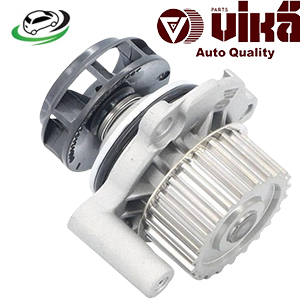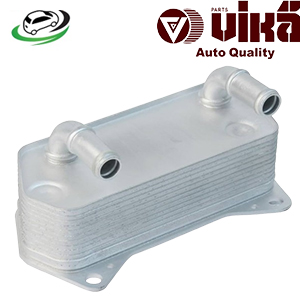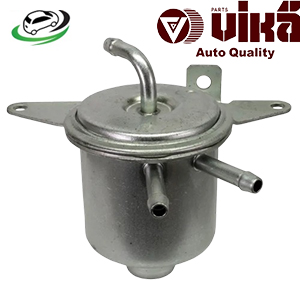-12%
Get AUDI 100 C3 Saloon (443 444)/ 80 B2 Saloon (811 813 814 819 853)/ Coupe B2 (81 855 856) / VW Jetta I (16)/ Passat B2 (32B) Fuel Filter 026127177B
The fuel filter is a small but essential component of a vehicle’s fuel system. It plays a critical role in ensuring that the engine receives clean fuel, free of impurities and contaminants, which is vital for optimal engine performance and longevity. In this comprehensive 1000-word explanation, we will delve into the fuel filter’s function, importance, types, signs of failure, and maintenance best practices.
1. What is a Fuel Filter?
A fuel filter is a component that filters out debris, dirt, and other contaminants from the fuel before it reaches the engine. It is designed to trap small particles that could otherwise cause damage to the engine’s fuel injectors or carburetor and result in poor combustion. Over time, fuel can pick up impurities from the fuel tank, fuel lines, or during refueling, and the fuel filter helps ensure these contaminants do not enter the engine.
Typically, fuel filters are made of a material like paper, nylon, or metal mesh, and are housed in a cylindrical casing. The type of filter used depends on the fuel system design and vehicle specifications.
2. Location of the Fuel Filter
The fuel filter can be found in different locations depending on the vehicle make and model. It is usually positioned either along the fuel line between the fuel tank and the engine or integrated within the fuel pump assembly inside the fuel tank. For vehicles with carbureted engines, the filter is commonly located near the carburetor or the fuel pump. In fuel-injected engines, it can be located under the vehicle along the frame rail or within the fuel tank.
In modern vehicles, the fuel filter is often part of the fuel pump assembly, meaning that accessing it for replacement may involve removing the fuel tank or a portion of the fuel system.
3. How the Fuel Filter Works
As fuel is drawn from the tank, it passes through the fuel filter before reaching the engine. The filter’s main task is to trap solid particles such as rust, dirt, and other contaminants present in the fuel. These impurities can originate from several sources, including:
- Fuel tank corrosion: Over time, the interior of the fuel tank can corrode, especially in older vehicles. This corrosion can lead to rust particles mixing with the fuel.
- Fuel quality: Contaminated or low-quality fuel can introduce foreign particles into the system.
- Debris during refueling: Dirt and particles can inadvertently enter the tank when refueling, particularly if the fuel cap is left open.
The fuel filter uses a porous material, such as a fine mesh, to trap these contaminants while allowing clean fuel to pass through. Once the fuel has been filtered, it continues to the fuel injectors (in fuel-injected engines) or carburetor (in carbureted engines), where it is mixed with air and burned for combustion.
4. Importance of the Fuel Filter
A. Protecting the Engine
One of the primary functions of the fuel filter is to protect the engine from damage. Fuel contamination can severely impact the fuel delivery system, clogging fuel injectors or carburetors, and leading to poor fuel atomization, incomplete combustion, and reduced engine efficiency. In extreme cases, unfiltered fuel can cause significant wear and tear on internal engine components, leading to costly repairs.
B. Improving Fuel Efficiency
A clean fuel filter ensures that the fuel injectors receive a consistent flow of clean fuel. This allows the engine to run efficiently, as it burns the fuel more completely. A clogged or dirty fuel filter can restrict fuel flow, forcing the engine to work harder and leading to poor fuel economy. Regularly replacing the fuel filter can help maintain fuel efficiency and reduce overall fuel consumption.
C. Ensuring Smooth Engine Performance
When the fuel filter is clean, it helps maintain smooth engine performance. A clogged or dirty filter can result in uneven fuel delivery, causing the engine to hesitate, misfire, or stall. By preventing these issues, the fuel filter contributes to smoother acceleration, better throttle response, and more reliable engine operation.
D. Preventing Emission Problems
Contaminated fuel can cause incomplete combustion, which increases the levels of harmful emissions. A clean fuel filter ensures that the engine burns fuel more efficiently, helping to reduce emissions and ensuring the vehicle meets environmental standards.
5. Types of Fuel Filters
There are several types of fuel filters, each designed to work with different fuel system configurations and fuel types:
A. In-Line Fuel Filters
In-line fuel filters are the most common type and are located along the fuel line between the fuel tank and the engine. These filters are usually cylindrical and can be replaced without having to remove the fuel tank. They are common in both carbureted and fuel-injected vehicles.
B. In-Tank Fuel Filters
In-tank fuel filters are located inside the fuel tank and are often part of the fuel pump assembly. They are commonly found in modern vehicles with fuel-injected engines. Replacing an in-tank fuel filter typically requires removing the fuel tank, which can be a more complex and time-consuming process.
C. Cartridge Fuel Filters
Cartridge fuel filters consist of a replaceable filter element housed inside a permanent casing. When replacing the filter, only the inner element is replaced, while the outer casing remains in place. These filters are often used in diesel engines.
D. Spin-On Fuel Filters
Spin-on fuel filters are similar to oil filters in that they have a screw-on design, making them easy to replace. They are common in both gasoline and diesel engines and are usually located in accessible areas of the engine bay.
E. Diesel Fuel Filters
Diesel fuel filters are specifically designed for diesel engines and often feature a water separator to remove moisture from the fuel. Water contamination is more common in diesel fuel, and removing it is critical to preventing damage to the engine and fuel injectors.
6. Signs of a Failing or Clogged Fuel Filter
Over time, the fuel filter can become clogged with debris, reducing its effectiveness. A failing or clogged fuel filter can lead to several noticeable symptoms, including:
A. Engine Misfires
A clogged fuel filter can restrict the flow of fuel to the engine, leading to incomplete combustion and engine misfires. You may notice the engine hesitating or sputtering, particularly during acceleration or under load.
B. Reduced Power
When the fuel filter is clogged, the engine may struggle to receive enough fuel, resulting in reduced power output. This can be particularly noticeable when trying to accelerate or climb hills.
C. Difficulty Starting the Engine
A clogged fuel filter can make it difficult for the engine to start, especially after the vehicle has been sitting for a while. The restricted fuel flow may prevent the engine from receiving enough fuel to ignite properly.
D. Poor Fuel Economy
A dirty or clogged fuel filter can lead to inefficient fuel combustion, forcing the engine to use more fuel than necessary. This can result in reduced fuel efficiency and higher fuel consumption.
E. Check Engine Light
In some vehicles, a clogged fuel filter can trigger the check engine light. This is often a result of poor fuel delivery causing issues with the engine’s performance or emissions system.
7. Maintaining the Fuel Filter
Proper maintenance of the fuel filter is crucial for ensuring optimal engine performance and longevity. Here are some best practices for maintaining the fuel filter:
A. Regular Replacement
Most vehicle manufacturers recommend replacing the fuel filter every 20,000 to 40,000 miles, depending on the vehicle and driving conditions. It’s essential to follow the manufacturer’s guidelines for fuel filter replacement to prevent clogs and maintain fuel system health.
B. Use High-Quality Fuel
Using high-quality fuel from reputable sources can help reduce the risk of fuel contamination. Lower-grade fuels may contain higher levels of impurities that can clog the fuel filter more quickly.
C. Check for Fuel Contamination
If you notice signs of fuel contamination, such as dirt or rust particles in the fuel, it may be necessary to replace the fuel filter more frequently. Additionally, if water contamination is detected in a diesel engine, the water separator should be drained regularly.
D. Inspect the Fuel System
During routine vehicle maintenance, it’s a good idea to inspect the fuel system for signs of leaks, corrosion, or damage. A properly maintained fuel system helps reduce the risk of fuel contamination and prolongs the life of the fuel filter.
E. Address Warning Signs Early
If you notice any of the symptoms of a failing fuel filter, such as engine misfires, reduced power, or difficulty starting, it’s essential to address the issue promptly. Replacing a clogged fuel filter can prevent more severe engine problems down the line.
8. Replacing the Fuel Filter
Replacing the fuel filter is generally a straightforward task, although the difficulty level can vary depending on the filter’s location. For in-line fuel filters, the process typically involves disconnecting the fuel lines, removing the old filter, and installing a new one. In-tank fuel filters, however, require more labor, as they are housed inside the fuel tank and may necessitate its removal.
It’s important to follow the manufacturer’s instructions for replacing the fuel filter and to use the correct type of filter for the vehicle. For those unfamiliar with fuel system maintenance, it’s recommended to have the filter replaced by a professional mechanic.
9. Conclusion
The fuel filter is a vital component of a vehicle’s fuel system, responsible for ensuring that the engine receives clean, contaminant-free fuel. By preventing debris, dirt, and rust particles from entering the engine, the fuel filter helps maintain engine performance, fuel efficiency, and longevity. Regular maintenance and timely replacement of the fuel filter are essential for preventing engine damage and ensuring the vehicle operates smoothly.
Understanding the importance of the fuel filter, recognizing the signs of a failing filter, and following proper maintenance practices will help you keep your vehicle’s fuel system in top condition. Whether you drive a gasoline or diesel engine, ensuring the fuel filter is clean and functioning properly is key to enjoying reliable and efficient vehicle performance.
Follow us on Facebook for more parts.




Reviews
Clear filtersThere are no reviews yet.